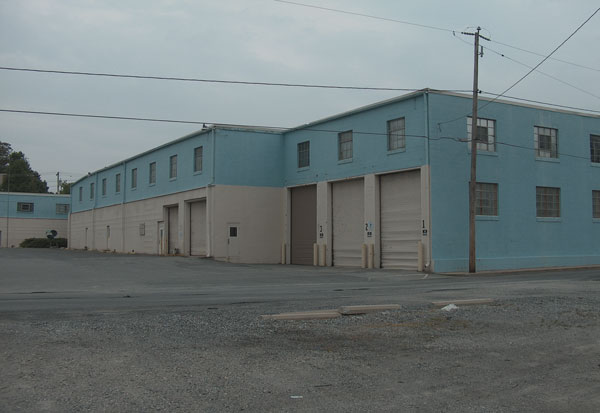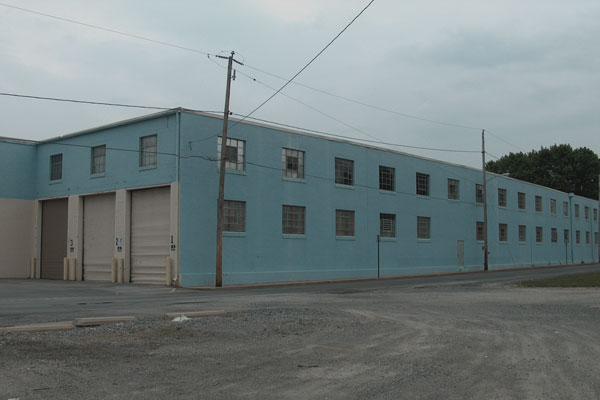

Residing within the corporate limits of Frowntown are a couple gas stations, two high schools, three bars, a University, fire stations, police, residents, dogs and cats, cars and bicycles. There is one factory left in Frowntown, though everyone doubts that it will survive another 5 years unless some outside company buys it. The factory is called Townshend Manufacturing, and they work mainly in plastics, producing a number of different products - child car seats, those blue chairs that fill public school classrooms, step stools, and other forgotten products that inhabit the edges of our lives. Townshend Manufacturing has been suffering from the same disease that has been plauging Frowntown for the last 15 years. With manufacturing jobs moving to cheaper overseas developing countries, both Frowntown and the Townshend family have seen their opportunities to pull life from the earth diminish, even as their ability to do so has increased. Sam Townshend is the third, and probably the last, Townshend to own his company. When Sam looks back over his family line to his grandfather, he looks for strength to continue, but mostly for the forgiveness and understanding he needs to allow this family business to falter and fail. The Townshend family would never make it into the fortune 500, would never have a headquarters in New York or a company jet parked in Miami. Ever since NAFTA and the widespread ease of global shipping, more and more contracts for Townshend's plastics have not been renewed, and fewer and fewer new contracts have been written. Sam Townshend knows he can't blame NAFTA, can't blame Mexico, Taiwan, or the 1000 different port-side manufacturing communities that have been set up in foreign countries to produce the goods he used to ease out the door of his own factory. Sam sees that the problem is not as simple as that, that he can't place the responsibility only on someone else: he couldn't figure out how to respond to a changing situation, and that's what put his company where it is today. The rules for production have changed from products to ideas, and most days Sam feels he is blissfully ignorant of new ideas. Raised in an environment of structure, rules, and tradition, Sam was taught to obey and follow, taught to make decisions based on the rules, based on what he had learned from the past, not what the future might hold. The creativity in Sam's life had been based on how to change machines, how to push the line faster, make more and more; and after thinking that way for his whole life, he just couldn't step outside 45 years of his father's teaching, couldn't step far enough outside to produce anything ethereal, couldn't create a new way to draw life out of his mind instead of out of the earth. Frowntown had managed to slowly move away from Sam Townshend's factory, once Wal-Mart set up a huge new building on the other end of town, and almost every employee Townshend had to let go ended up walking down Main St. to be taught how to greet customers, how to stock shelves, count inventory, ring up purchases. The Wal-Mart was just another signpost along the road which would eventually terminate at the destruction of Frowntown. The money that the Townshend factory made had ultimately stayed in Frowntown: Sam's father John Townshend had used the profits from the best years of the business to buy property around town, to build housing for an increasing number of employees, even to set up a scholarship for deserving children of Frowntown who would otherwise never have had the chance to go to college. The money Frowntown produced had, at least to a point, stayed in Frowntown, helping to build the community. The money Wal-Mart took in would go to Wal-Mart's CEOs and a thousand different stockholders who had no reason to help keep the residents of Frowntown out of dire straits. The economy of Frowntown was slipping out of the hands of the citizens and into the hands of a multi-national company that had no connection to, or understanding of, the lives it influenced. Sam Townshend saw all these changes and felt the only thing he could do was hold out and run his company as long as he could. Sam felt, from somewhere deep in himself, that he was responsible for the decline of the quality of life in Frowntown. After the University, he was the largest employer in town, and if the town was suffering, he could only blame himself. Sam had been forced to lay off workers, to keep workers at the same wage, even if they deserved a raise, to cut costs even at the risk of safety. Sam read OSHA rules all the time, looking for ways to speed up production while still staying mostly within legal limits for workers. Sam had been reluctant to put more responsibility on fewer workers, but he really had no choice. He saw himself making deals with employees, asking them to do more and more work just so they could keep their jobs. Sam didn't want to fire anyone, but if he didn't cut back on expenditures, he wouldn't be able to buy the materials he needed to keep Townshend Manufacturing running. It seemed that every day the prices he had to pay for raw materials went up, but the price he got for finished products went down. It used to be that Sam could walk into a baby supply store anywhere in the area and chances were good that he could turn over the display model of a car seat and see the half inch "TM" mark on the bottom of the chair and smile. He wasn't just making money, wasn't just running machines: Sam was protecting children. He could do the same with any of the chairs in the schools in town, he even once got a picture from a floor supervisor who was on vacation: the picture was the bottom of a plastic tape rack and showed the small Townshend Manufacturing mark, barely visible on the black plastic. The supervisor, who he had recently laid off, had been on vacation in Hawaii. Sam's company had reached all over the country, had provided safety for children in every state, and their products had silently been used by millions of Americans, most of them having no idea that the products in their lives had been made by him and his company. Townshend Manufacturing had never had its own brand - none of the men who had ever run the company had ever been very good at advertising, and they had all figured it was best to simply produce the products and let some other company market them. Even now, they were producing plastic CD racks labeled "LaserLine", plastic speaker boxes for Sony, and pieces of Jeep dashboards. Sam's company had gone from producing almost complete products to having only the smallest hand in a product. Sam could hardly find anything that left his factory that could be sold as is, that wasn't going to another factory, probably in another country, to be assembled by another worker who was supervised by another supervisor, with an owner above him who was likely facing the very same problems Sam was facing. The economy was moving away from those who could create tangible, physical products, towards those who could create ideas, emotions, and Sam, and his whole company, was on the losing end of this shift. Sam knew that his company was dying, knew that he would probably not pass it on to his son, knew that the name Townshend would no longer be painted on the sides of buildings next to the train tracks. Sam could feel that his son would grow up in a world where his life wasn't certain, where he didn't have a job waiting for him at the company. Sam could feel his life being taken away from him, and what frightened him the most was that he could feel it being taken away from his son. Sam was finally looking carefully at the future, and he was afraid and sad. |
